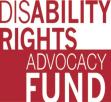

JOINT PRESS RELEASE
Indigenous persons with disabilities present study to the UNPFII
New York City, New York, May 22, 2013 – Study on the situation of indigenous persons with disabilities presented today at the 12th Session of the United Nations Permanent Forum on Indigenous Issues (UNPFII)
On behalf of the newly formed disability caucus, and together with UNPFII member, Mr. Paul Kanyinke Sena, Ms. Ipul Powesau co-presented a study on the situation of indigenous persons with disabilities. The 'Study on the situation of indigenous persons with disabilities, with a particular focus on challenges faced with respect to the full enjoyment of human rights and inclusion in development' (E/C.19/2013/6), explores how the UN Convention on the Rights of Persons with Disabilities (CRPD) and the UN Declaration on the Rights of Indigenous Peoples (UNDRIP) provide a framework for the protection of rights of indigenous persons with disabilities. Requested by the UNPFII at its 11th session in 2012, following the first-ever delegation of indigenous persons with disabilities at the Forum, the study was drafted by UNPFII members, Ms. Myrna Cunningham and Mr. Paul Kanyinke Sena, in consultation with indigenous persons with disabilities and their representative organizations. The study includes recommendations to UN agencies and other relevant stakeholders on ways to increase the inclusion and participation of indigenous persons with disabilities and support the establishment and capacity of organizations of indigenous persons with disabilities. During the presentation of the report, Ms. Powaseu called on United Nations agencies dealing with indigenous peoples’ issues to take action on the inclusion of indigenous persons with disabilities in all their activities. She requested them to make their websites accessible to persons with disabilities and promote increased participation of indigenous persons with disabilities in their annual sessions.
Immediately following the presentation of the report, a side event on the rights of indigenous persons with disabilities was held. Indigenous representatives with disabilities provided more information on the report and highlighted some immediate actions that should be taken to improve their situation. Panelist Ms. Gayle Rankine described the situation of Aboriginal women with disabilities in Australia, who lack of access to shelters for violence, and culturally appropriate services. Panelist and youth representative Ms. Andrea Harrison of Canada related her experiences in a segregated educational system, which, for years, denied her full time education. She called for governments to make sure that persons with intellectual disabilities have access to inclusive education, all of the same opportunities as their peers, food and housing. Panelist Mr. Kamala Sen Chakma, from Chittagong Hill Tracts, Bangladesh, stressed the need for inclusive development, poverty reduction, and assistive devices. He called for meaningful inclusion of indigenous persons with disabilities in the post-2015 development agenda and the 2014 World Conference on indigenous peoples. Panelist Ms. Rita Petrussen, a deaf woman from Greenland, told participants how she had only had had access to one year of sign language education when she was fifteen. She called for the re-establishment of education for deaf persons in Greenland, inclusive ICT and employment for deaf persons. “The report represents a big step forward in terms of attention to the rights of indigenous persons with disabilities in the Forum,” stated Ms. Catalina Devandas, representing the Disability Rights Advocacy Fund. “We hope that this attention will continue to increase and address the barriers preventing indigenous persons with disabilities from enjoying their equal rights.” The event was organized by the International Disability Alliance (IDA), the Disability Rights Advocacy Fund (DRAF), the UN Division for Social Policy and Development and the Australian mission to the UN. The initiative of DRAF and IDA to advance the rights of indigenous persons with disabilities is supported with funding from Australian Aid.
Contacts:
Ellen Walker, International Disability Alliance, ewalker [at] ida-secretariat.org
Catalina Devandas, Disability Rights Advocacy Fund, cdevandas [at] disabilityrightsfund.org
Archive: http://test-ida2.pantheonsite.io/sites/default/files/migrated/DRAF%20and...
